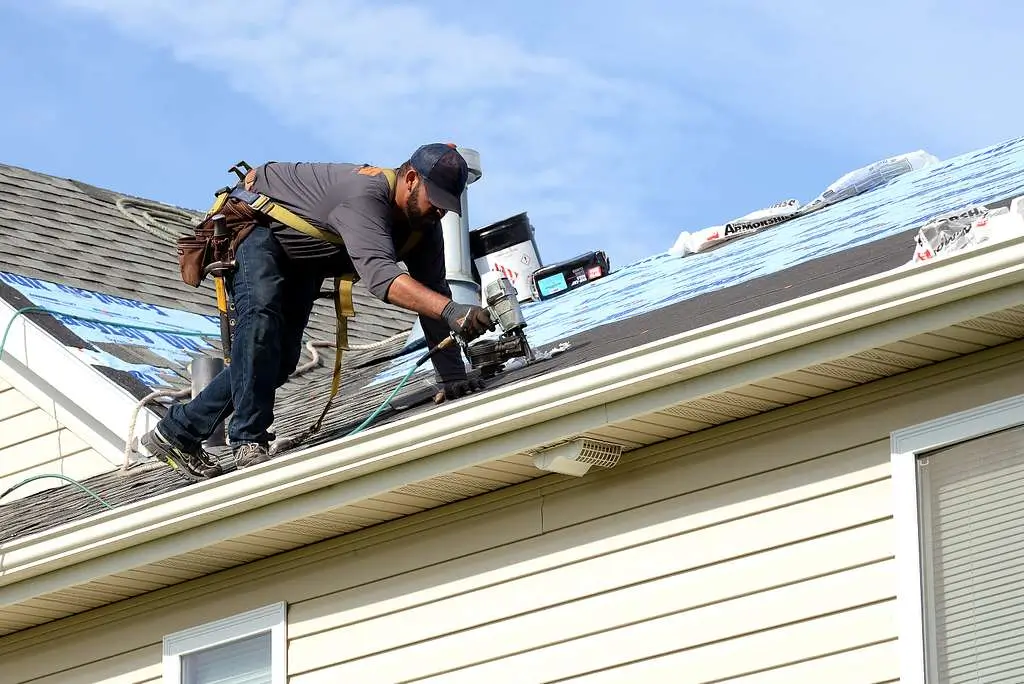Is a New Roof Tax Deductible in 2024? A Comprehensive Guide
Owning a home comes with many responsibilities, and one of the most significant is keeping the roof over your head in good condition—literally. Whether it’s because of storm damage, wear and tear over the years, or just the need for an upgrade, replacing your roof can be a costly but necessary investment. But here’s a question that many homeowners ask: Is a new roof tax deductible?
No, a new roof is not tax deductible as it’s considered a home improvement, not a repair. However, the cost can increase your home’s adjusted basis, which may reduce your taxable gain when you sell the property. This can offer potential tax savings in the long run.
In this article, we’ll dive into everything you need to know about the tax implications of installing a new roof, special considerations for different roof types, and how to claim any possible deductions.
Can You Deduct a New Roof?

Unfortunately, the cost of installing a new roof isn’t tax deductible. This is because a new roof is classified as a home improvement, and expenses related to home improvements don’t qualify for immediate tax deductions.
However, there’s still a silver lining. While you can’t deduct the cost now, home improvement expenses like a new roof can increase the basis of your property. The basis is typically the price you paid for your home or the cost to build it. When you make significant upgrades, such as replacing the roof, rewiring the home, adding an extension, installing central air conditioning, or paving the driveway, these improvements increase your home’s adjusted basis.
Maintaining accurate records of these improvements is crucial because your adjusted basis is used to determine the gain on your property when you sell it. A higher adjusted basis can reduce your taxable gain, potentially lowering the taxes you owe when selling your home. Additionally, homeowners may be eligible to exclude all or part of their gain from taxes if they meet specific ownership and use requirements. So, while the upfront deduction isn’t available, your investment can still pay off in the long run.
Special Considerations for Different Roof Types
Not all roofs are created equal, especially when it comes to tax deductions. Here’s what you need to know about energy-efficient roofs and solar roofs:
1. Energy-Efficient Roofs
If you’re investing in an energy-efficient roof, you may be in for some tax savings. Energy-efficient roofs are designed to reflect more sunlight and absorb less heat, which can reduce your home’s cooling costs. The IRS offers a tax credit for certain energy-efficient improvements, including some roofing materials like metal and asphalt with appropriate cooling granules.
These materials must meet specific Energy Star requirements to qualify. If your roof does, you could claim a tax credit for 10% of the cost, up to a maximum of $500. This credit directly reduces the amount of tax you owe, making it a more valuable incentive than a standard deduction.
2. Solar Roofs
Solar roofs take energy efficiency to the next level by generating electricity directly from the sun. If you install a solar roof, you may be eligible for the federal solar tax credit, which allows you to deduct 30% of the cost of installing a solar energy system from your federal taxes.
This credit applies not just to the solar panels but also to other associated costs, such as labor and installation. There’s no cap on the credit, making it a significant incentive for homeowners considering solar energy. As of 2024, this credit is set to last through 2032, making now a great time to go solar if you’re considering it.
How to Claim Tax Deductions for a New Roof
If your new roof qualifies for a tax deduction or credit, you’ll want to make sure you claim it correctly to maximize your savings.
1. Keep Thorough Documentation
The IRS is all about documentation, so keep all your receipts, contracts, and any certifications for energy-efficient materials. These documents are essential when it comes to substantiating your claim.
2. Reporting on Your Taxes
When it’s time to file your taxes, you’ll need to report the cost of your new roof in the appropriate sections of your tax return. For energy-efficient roofs, you’ll typically use IRS Form 5695 (Residential Energy Credits). For depreciation purposes, you’ll need to report the expense on Form 4562.
3. Consult a Tax Professional
Tax laws can be complex, and they change frequently. Consulting a tax professional is always a good idea, especially for significant home improvements like a new roof. They can help you navigate the specifics and ensure you’re claiming all the deductions and credits you’re entitled to.
Is Roof Replacement Tax Deductible Under Normal Circumstances?
Under normal circumstances, roof replacement is considered a capital improvement and is not immediately tax deductible. Instead, the cost is added to your home’s cost basis. This means you can’t write off the entire expense in the year you replace the roof, but it can help you when you sell your home by reducing the amount of capital gains tax you’ll owe.
For example, if you spend $20,000 on a new roof and your home sells for $50,000 more than your adjusted cost basis, your taxable gain would be reduced by that $20,000.
Are There Times When Replacing a Roof Might Be Tax Deductible?
There are specific scenarios where the cost of replacing a roof might be deductible:
- Business Use of Home
If you use part of your home exclusively for business, you may be able to deduct part of the roof’s cost. For instance, if you run a home-based business or rent out part of your property, you could deduct a portion of the roof replacement cost as a business expense. - Casualty Loss Deductions
If your roof is damaged due to a sudden, unexpected event like a natural disaster, you may be eligible to claim a casualty loss deduction. This is only applicable if the damage isn’t covered by insurance or if the loss exceeds what the insurance covers.
Conclusion
Replacing your roof is a significant investment in your home, and while it might not offer an immediate tax deduction, understanding the long-term implications can still save you money. Whether you’re considering an energy-efficient roof, a solar roof, or just a standard replacement, it’s crucial to know how these choices affect your taxes.
Remember to keep detailed records, consult a tax professional if you’re unsure, and explore any credits or deductions you may qualify for. By doing so, you’ll not only protect your home but also make the most of your financial investment.
FAQs

